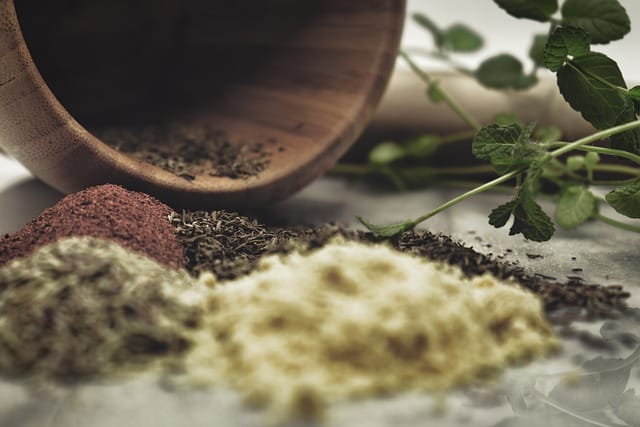In the quest for weight loss, many people turn to natural remedies, hoping to shed pounds without the side effects of medications or the intensity of rigorous exercise routines. While some natural remedies can indeed support weight loss, it’s essential to understand what works, what doesn’t, and why. This article explores various natural weight loss remedies, explaining how they can help you lose weight and whether they are backed by science.
Understanding Natural Weight Loss Remedies
Natural weight loss remedies often involve the use of herbs, dietary adjustments, and lifestyle changes that support the body’s natural ability to burn fat and maintain a healthy weight. These remedies are popular because they are generally safe, accessible, and can be incorporated into daily life without drastic changes.
However, it’s important to remember that natural remedies are not magic solutions. They work best when combined with a balanced diet, regular exercise, and healthy lifestyle habits. Let’s dive into some of the most popular natural weight loss remedies and examine their effectiveness.
1. Green Tea
How It Works
Green tea is rich in antioxidants called catechins, particularly epigallocatechin gallate (EGCG), which are believed to boost metabolism and increase fat burning. The caffeine in green tea also helps enhance energy levels and fat oxidation.
Effectiveness
Several studies have shown that green tea can support weight loss by increasing the number of calories your body burns. For example, a study published in the American Journal of Clinical Nutrition found that participants who consumed green tea extract experienced a significant increase in calorie expenditure compared to those who didn’t .
How to Use
To benefit from green tea, drink 2-3 cups per day, ideally without adding sugar. You can also take green tea extract supplements, but it’s essential to choose a reputable brand and follow the recommended dosage.
2. Apple Cider Vinegar
How It Works
Apple cider vinegar (ACV) is believed to aid weight loss by reducing appetite, increasing feelings of fullness, and improving digestion. The acetic acid in ACV may also help lower blood sugar levels and reduce fat storage.
Effectiveness
Research on apple cider vinegar for weight loss is promising but still limited. A study published in Bioscience, Biotechnology, and Biochemistry found that participants who consumed vinegar daily experienced greater weight loss and a reduction in belly fat compared to those who did not .
How to Use
To use apple cider vinegar for weight loss, mix 1-2 tablespoons in a glass of water and drink it before meals. Start with a lower dose to see how your body reacts, and avoid consuming it undiluted, as it can erode tooth enamel.
Further Reading: How Apple Cider Vinegar Can Help You Lose Weight
3. Ginger
How It Works
Ginger is known for its anti-inflammatory and antioxidant properties. It may aid weight loss by improving digestion, reducing inflammation, and enhancing calorie burning. Ginger also helps stabilize blood sugar levels, which can prevent cravings and overeating.
Effectiveness
Several studies suggest that ginger can support weight loss. For instance, a study published in Metabolism found that ginger consumption enhanced thermogenesis (the process of heat production in the body) and reduced feelings of hunger .
How to Use
You can add fresh ginger to your meals, brew ginger tea, or take ginger supplements. Drinking ginger tea before meals can help improve digestion and promote feelings of fullness.
4. Lemon Water
How It Works
Lemon water is a simple and refreshing way to stay hydrated while supporting your weight loss efforts. The vitamin C and antioxidants in lemons may help improve digestion and boost metabolism. Additionally, drinking lemon water before meals can help you feel full, reducing your overall calorie intake.
Effectiveness
While there’s limited scientific evidence directly linking lemon water to weight loss, staying hydrated is crucial for weight management. Proper hydration supports digestion, prevents overeating, and can enhance your overall energy levels.
How to Use
Start your day with a glass of warm lemon water, and drink it throughout the day to stay hydrated. Simply squeeze the juice of half a lemon into a glass of water, and enjoy it plain or with a bit of honey.
5. Cayenne Pepper
How It Works
Cayenne pepper contains capsaicin, a compound known to increase metabolism and promote fat burning. Capsaicin may also reduce appetite, making it easier to eat less and lose weight.
Effectiveness
Research suggests that capsaicin can boost metabolism and promote weight loss. A study published in Appetite found that consuming capsaicin led to a reduction in calorie intake and increased fat oxidation .
How to Use
Add cayenne pepper to your meals, or take it in capsule form if you don’t enjoy the spicy taste. Start with small amounts to gauge your tolerance, and gradually increase the amount over time.
Further Reading: Capsaicin and Its Role in Weight Loss
6. Fiber-Rich Foods
How It Works
Dietary fiber is essential for weight loss because it promotes feelings of fullness, reduces appetite, and helps regulate blood sugar levels. Soluble fiber, in particular, forms a gel-like substance in the stomach, slowing down digestion and helping you stay full for longer.
Effectiveness
Studies consistently show that higher fiber intake is associated with weight loss and reduced risk of obesity. A study published in The American Journal of Clinical Nutrition found that increasing dietary fiber led to significant weight loss, even without other dietary changes .
How to Use
Incorporate more fiber-rich foods into your diet, such as fruits, vegetables, whole grains, legumes, and nuts. Aim for at least 25-30 grams of fiber per day for optimal health benefits.
7. Probiotics
How It Works
Probiotics are beneficial bacteria that support gut health. A healthy gut microbiome can influence weight by regulating digestion, reducing inflammation, and affecting how the body stores fat.
Effectiveness
Some studies suggest that certain strains of probiotics may help with weight loss. For example, research published in Obesity Reviews found that specific probiotic strains, such as Lactobacillus gasseri, were associated with reduced body weight and fat mass .
How to Use
You can get probiotics from fermented foods like yogurt, kefir, sauerkraut, and kimchi, or take a high-quality probiotic supplement. When choosing a supplement, look for one that contains multiple strains and has a high CFU (colony-forming unit) count.
Further Reading: Probiotics and Weight Loss: Can They Help?
8. Coconut Oil
How It Works
Coconut oil is rich in medium-chain triglycerides (MCTs), which are known to boost metabolism and promote fat burning. Unlike long-chain fats, MCTs are more easily absorbed and converted into energy rather than stored as fat.
Effectiveness
Research suggests that MCTs can increase calorie expenditure and support weight loss. A study published in Lipids found that participants who consumed MCTs from coconut oil experienced greater weight loss and fat reduction compared to those who consumed long-chain fats .
How to Use
Use coconut oil in cooking, or add a tablespoon to your coffee or smoothies. However, keep in mind that coconut oil is still high in calories, so it should be used in moderation.
Further Reading: How Coconut Oil Can Help You Lose Weight
9. Intermittent Fasting
How It Works
Intermittent fasting (IF) is an eating pattern that alternates between periods of eating and fasting. It can help reduce calorie intake, improve insulin sensitivity, and increase fat burning.
Effectiveness
Intermittent fasting has been shown to be effective for weight loss. A review published in Obesity Reviews found that IF led to significant weight loss, particularly in people with overweight or obesity .
How to Use
There are different methods of intermittent fasting, such as the 16/8 method (fasting for 16 hours and eating within an 8-hour window) or the 5:2 method (eating normally for 5 days and restricting calories on 2 non-consecutive days). Choose the method that fits your lifestyle and stick to it consistently.
Further Reading: Intermittent Fasting for Weight Loss
10. Adequate Sleep
How It Works
Sleep is crucial for weight loss because it affects the hormones that regulate hunger and appetite. Lack of sleep can lead to increased levels of ghrelin (the hunger hormone) and
decreased levels of leptin (the satiety hormone), making it harder to control your appetite and leading to weight gain.
Effectiveness
Numerous studies have shown a link between poor sleep and weight gain. A study published in Sleep found that people who slept less than 7 hours per night were more likely to gain weight and have higher levels of body fat .
How to Use
Aim for 7-9 hours of quality sleep per night. Establish a regular sleep schedule, create a relaxing bedtime routine, and minimize exposure to screens before bed to improve your sleep quality.
Final Thoughts: Combining Natural Remedies with a Healthy Lifestyle
Natural weight loss remedies can be effective when used correctly, but they should not be relied upon as the sole method for weight loss. The most sustainable and healthy approach to weight loss involves a combination of natural remedies, a balanced diet, regular exercise, and a healthy lifestyle.
It’s also important to consult with a healthcare provider before starting any new weight loss regimen, especially if you have underlying health conditions or are taking medications. Remember that weight loss is a gradual process, and the best results come from consistent, long-term efforts.
By incorporating these natural remedies into your daily routine and making mindful choices about your diet and lifestyle, you can achieve and maintain a healthy weight naturally.


